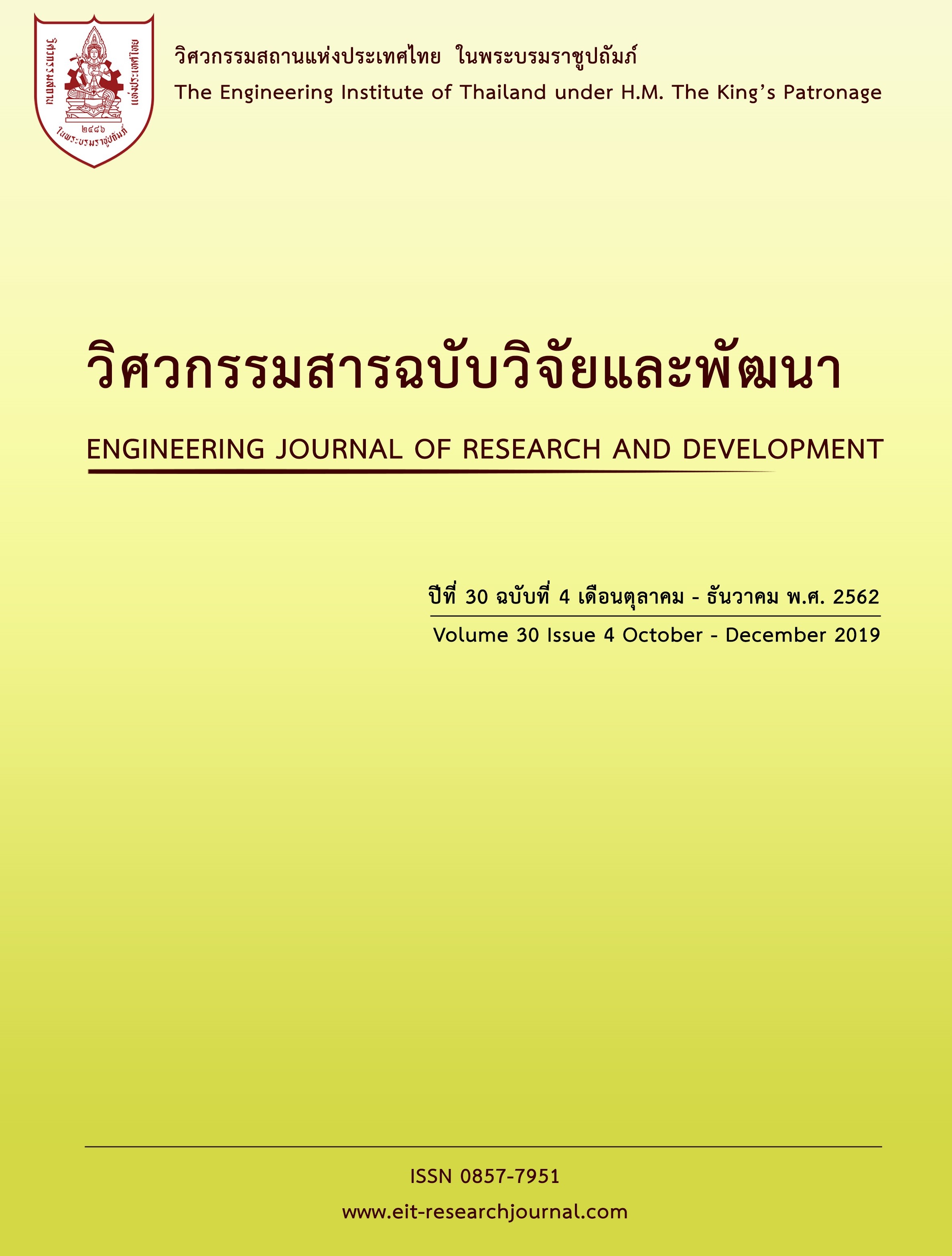THE EFFECT OF ORGANIC SOLVENT RATIOS ON MECHANICAL PROPERTIES AND THERMAL CONDUCTIVITY OF WALKWAY BLOCK FROM WASTE FOAM RESIDUE
Main Article Content
Abstract
This research was fabricated low thermal conductivity walkway block from waste foam residue which activated by organic solvent and heat treatment process. The effect of various ratios of organic solvent such as soybean oil to waste foam residue at the level of 0.4, 0.5, 0.6 and 0.7 were investigated. These walkway blocks were compared with the other from cement paste at water to cement ratio of 0.5. All specimens at the age of 3 days were tested for compressive and flexural strength, unit weight, water absorption, and thermal conductivity. The test results showed that the decreasing of soybean oil to waste foam residue ratio resulted in the reducing of unit weight and thermal conductivity while increasing of compressive and flexural strength values. Moreover, the compressive and flexural strength values of the walkway blocks form waste foam residue were higher than that of the walkway blocks form cement paste while the unit weight, water absorption, and thermal conductivity values were lower than that of the other. The synthesized walkway blocks had better mechanical properties and thermal conductivity values than that of commercial block which passed the standard set by Thai Industrial Standard (TIS 378-2531) for concrete flooring tiles. In addition, these walkway blocks form waste foam residue can be used as thermal insulation flooring tile which suited for in-outdoor area of the buildings.
Article Details
The published articles are copyright of the Engineering Journal of Research and Development, The Engineering Institute of Thailand Under H.M. The King's Patronage (EIT).


